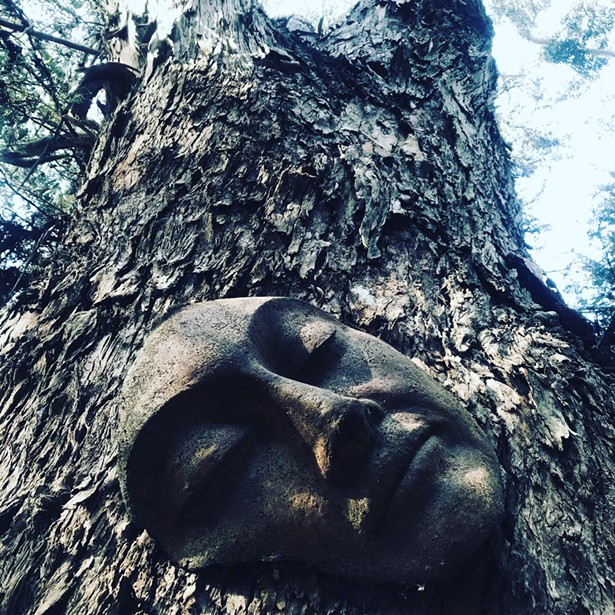Whatever comes, comes from a need,
a sore distress, a hurting want.
Mary's pain made the baby Jesus.
Her womb opened its lips
and spoke the Word.
Every part of you has a secret language.
Your hands and your feet say what you've done.
And every need brings in what's needed.
Pain bears its cure like a child.
Having nothing produces provisions.
Ask a difficult question,
and the marvelous answer appears.
Build a ship, and there'll be water
to float it. The tender-throated
infant cries and milk drips
from the mother's breast.
Be thirsty for the ultimate water,
and then be ready for what will
come pouring from the spring.
—Jellaludin Rumi, Mathnawi, translated by Coleman Barks
Esteemed Reader of Our Magazine:
As of today, we are approaching the fulfillment of the word "quarantine" which comes most recently from the Italian, quaranta giorni, "space of forty days", referring to "the period a ship suspected of carrying disease is kept in isolation" (1660s). Thanks to the invaluable Online Etymology Dictionary, we know further that "earlier, in English, the word meant 'period of 40 days in which a widow has the right to remain in her dead husband's house' (1520s), and, as quarentyne (15c.), 'desert in which Christ fasted for 40 days.'"
I often look to etymology as a kind of oracle, a compass for guidance on figurative terrain. In this instance, I am finding all three definitions instructive, each in its way. Each has an inner meaning that all of us can, in the midst of our shared ordeal, fathom, or at least give well-tempered consideration.
The first: Being kept in isolation, we are granted an opportunity for purification. For me this means holding a tender, inquisitive view of my attachments and their objects and being willing to let things go.
We can ask: In the realms of people, material objects, activities, thoughts, and habits, what is so infected that it simply needs to be let go? What can be cleansed of the contaminating agent of identification and be revived in a fresh form? What is essentially good and necessary and should receive the attention that has been withdrawn from the useless? This is not so much an analytical process as much as a sensitive weighing in the realm of being, like the bearer of the scales, blind Lady Justice.
In the second definition, this is a time to prepare to depart from the familiarity of a comfortable or at least familiar mode of life in society. Everything has changed, and at the end of the 40 days, we all must leave our dead husband's house. We have a reprieve to get acclimated to what is to be, to prepare for the unknown, to begin again.
The third is perhaps the most elusive and the most important. Jesus' 40 days in the desert is described as a period of intense purification, fasting, and temptation. In the myth, he emerges a prophet filled with power and clarity of intention, knowing and prepared to fulfill his mission. We can use this time not only to suffer the unavoidable difficulties mechanically but also intentionally, "fasting" to purify and emerge with renewed force and clarity.
With regard to fasting, it is a question of the balance between omission and commission. The measure is the question, what is the right amount? For instance, how much news and opinion do I need to ingest to stay informed? When have I had enough screen time, or imbibed enough tequila, or had enough exercise? Can I fast from anxiety, or resentment, or boredom and frustration? What can I put away from myself to interrupt the momentum of habit and pattern, and allow something new and creative to alight within my consciousness?
Rumi concludes:
Don't grieve for what doesn't come.
Some things that don't happen
keep disasters from happening.


















